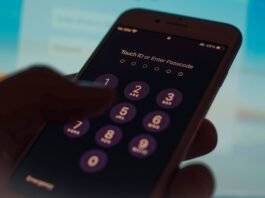The SAT, a rite of passage for many students applying to colleges and universities, has undergone a significant transformation in recent years with the introduction of the Digital SAT. This article aims to demystify the Digital SAT, providing insight into its format, preparation strategies, and addressing common concerns.
I. Introduction to the Digital SAT
A. What is the Digital SAT?
The traditional Digital SAT is an electronic version of the traditional SAT exam administered by the College Board. Consequently, it is designed to assess a student’s readiness for college and is a key component of the college admissions process.
B. Why is it important?
In an increasingly digital world, the Digital SAT aims to align with the skills and tools students will encounter in college and beyond. Hence, it offers a more dynamic testing experience and provides immediate scoring feedback.
II. Understanding the Digital SAT Format
A. Differences from the traditional SAT
Unlike its paper-based counterpart, the traditional Digital SAT is administered on a computer. Consequently, this means students will answer questions using a keyboard and mouse instead of a pencil and paper. Moreover, the Digital SAT features interactive elements such as highlighting and flagging questions for review.
B. Sections and timing
The Digital SAT Format consists of the same sections as the traditional SAT: Reading, Writing and Language, and Math. However, the timing for each section may vary slightly to accommodate the digital format.
III. Preparing for the Digital SAT
A. Study resources
Numerous study resources are available to help students prepare for the Digital SAT. These include online practice tests, study guides, and interactive tutorials. As a result, these resources can familiarize students with the digital format and provide targeted practice for each section.
B. Practice tests
Taking practice tests is essential for success on the Digital SAT. By doing so, students can simulate the testing environment, practice time management, and identify areas for improvement.
C. Test-taking strategies
Developing effective test-taking strategies is crucial for maximizing performance on the Digital SAT. For instance, strategies such as skimming passages, eliminating answer choices, and utilizing the built-in tools can help students navigate the exam more efficiently.
IV. Common Concerns and FAQs
A. Is the digital format harder?
While the digital format may require some adjustment, many students find it to be more intuitive and user-friendly than the traditional paper-based format.
B. Can I use scratch paper?
Yes, scratch paper is provided for students to use during the exam. However, all work must be done within the digital interface, and scratch paper cannot be taken outside of the testing room.
C. What about technical issues?
The College Board has implemented measures to minimize the risk of technical issues during the exam. Consequently, in the event of a technical issue, students will be provided with instructions on how to proceed.
D. How are scores reported?
Scores for the Digital SAT are typically available within two to three weeks after the exam date. Additionally, they are reported on the same scale as the traditional SAT, ranging from 400 to 1600.
V. Tips for Success
A. Managing time effectively
Time management is key to success on the Digital SAT. Therefore, students should practice pacing themselves during practice tests and prioritize questions based on difficulty.
B. Staying focused
Maintaining focus throughout the exam is essential. Hence, minimizing distractions, taking short breaks as needed, and staying positive can help students maintain concentration.
C. Utilizing digital tools
The Digital SAT offers various tools and features to aid students during the exam, such as a calculator for the Math section and highlighting tools for the Reading and Writing sections. Consequently, familiarizing oneself with these tools can streamline the testing process.
VI. Conclusion
The Digital SAT represents a significant evolution in standardized testing, providing a more dynamic and user-friendly experience for students. By understanding the format, preparing effectively, and utilizing available resources, students can confidently navigate and achieve success.
As the becomes increasingly prevalent, students need to adapt to this new format. By following the tips and strategies outlined in this article, students can maximize their performance and alleviate any concerns they may have about the SAT.
Remember, preparation is key. Utilize the available study resources, take practice tests, and develop effective test-taking strategies. Additionally, familiarize yourself with the digital tools and features provided during the exam to streamline the testing process.
In conclusion, while may present new challenges, it also offers exciting opportunities for students to demonstrate their skills in a digital environment. With thorough preparation and a positive mindset, students can crack the SAT and take a significant step towards achieving their academic goals.
FAQs
- Is the harder than the traditional paper-based SAT? While the format may be different, the content and difficulty level of the SAT are comparable to the traditional SAT.
- Can I bring my own calculator for the Math section? No, students cannot bring their own calculators for the Digital SAT. Instead, the testing interface provides a digital calculator.
-
What should I do in case technical difficulties arise during the exam? If there are technical difficulties, it’s essential for students to inform a proctor immediately. Consequently, the College Board will offer instructions on the necessary steps to take.
-
Am I permitted to skip questions and revisit them later if required? Absolutely, students can skip questions and return to them later within the same section. Consequently, effective time management is crucial to prioritize questions appropriately.
- How soon can I expect to receive my scores after taking the Digital SAT? Scores for the typically become available within two to three weeks after the exam date.
Read More Content At NBLfanatics




